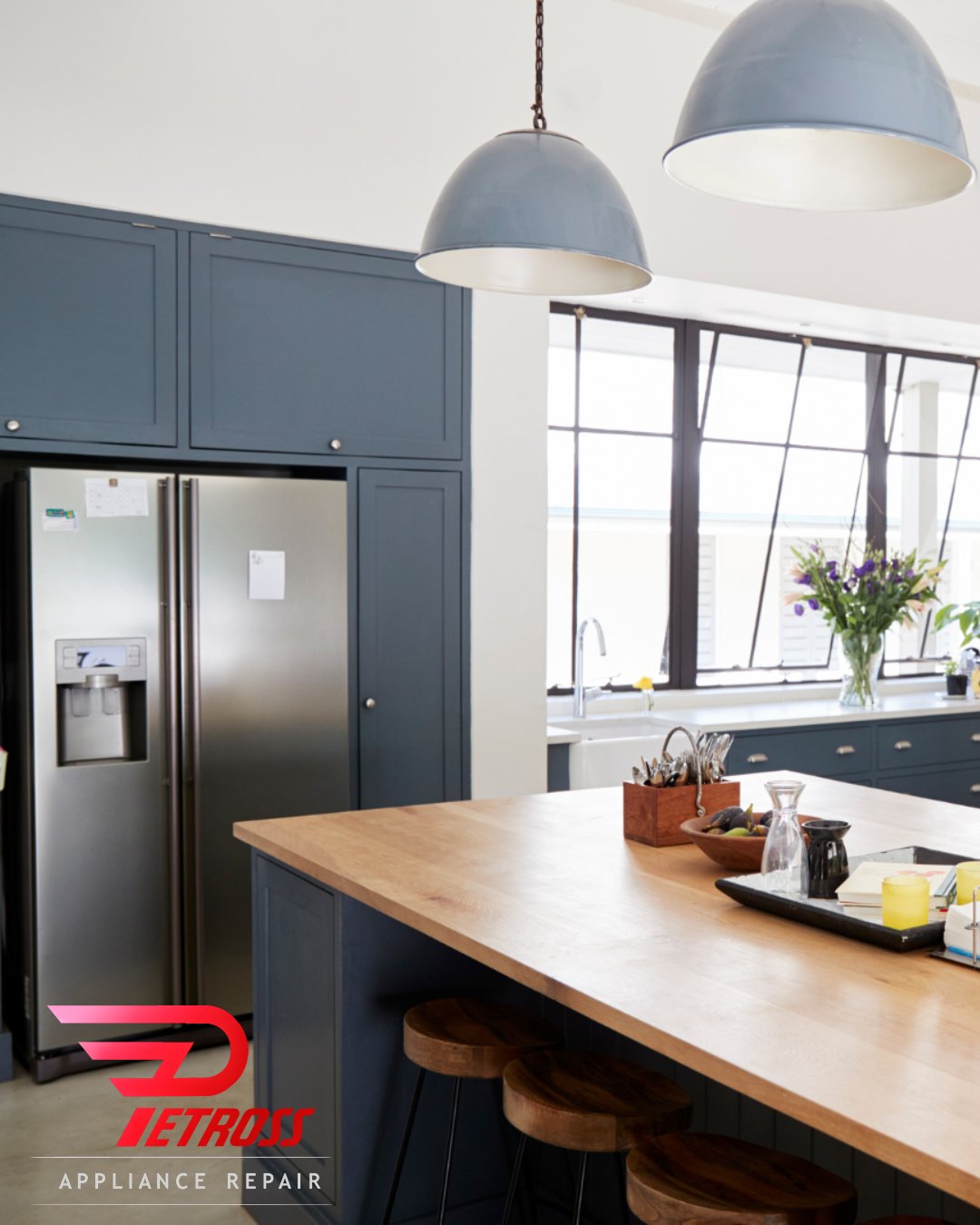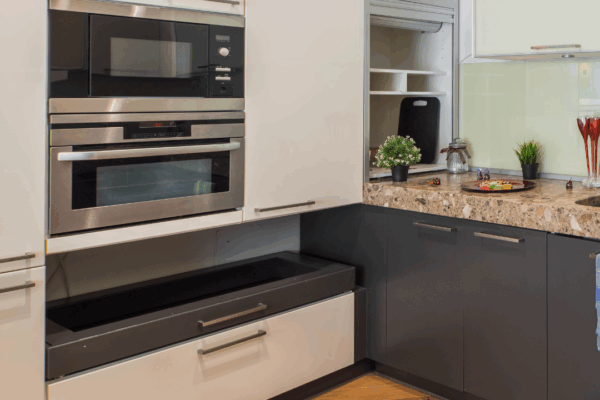
Signs Your Freezer May Be Failing and How to Fix It
Signs Your Freezer May Be Failing and How to Troubleshoot Freezer Problems
Discovering that your freezer isn’t working properly can be a frustrating experience, especially when you rely on it to preserve food and maintain household efficiency. Identifying freezer problems early can help prevent food spoilage and save you from unnecessary repair costs. Here, we offer professional guidance to help you troubleshoot common freezer issues, ensuring that your appliance remains reliable and efficient. Learn how to diagnose the signs that your freezer may be failing and find peace of mind with our expert advice.
Understanding Freezer Problems
Freezers are essential appliances in any home, providing a reliable way to store food for extended periods. However, like any appliance, freezers can develop issues over time. Understanding the common problems that can affect your freezer is the first step in effective troubleshooting. Whether it’s an upright freezer or a chest freezer, being aware of potential issues allows you to address them promptly, ensuring your appliance continues to work efficiently. From a freezer not freezing to unusual noises, recognizing these symptoms can aid in the timely repair or replacement of freezer parts.
Common Signs of a Freezer Not Freezing
One of the most noticeable signs that your freezer isn’t performing as it should is when it isn’t freezing. If your freezer isn’t cold enough, it could be due to a variety of factors, such as a malfunctioning compressor or dirty condenser coils. Another common issue is the buildup of frost, which can prevent cold air from circulating effectively. Additionally, a freezer door that doesn’t seal properly can allow warm air to enter, causing the freezer to struggle to maintain the correct temperature. Addressing these symptoms early can help you avoid more serious freezer problems.
Freezer Stops Working: What You Need to Know
When a freezer stops working altogether, it can be a cause for concern. To troubleshoot a freezer that has stopped working, start by checking the power supply and ensuring the appliance is plugged in correctly. If the freezer still doesn’t operate, the issue could be related to the evaporator fan, compressor, or even a defrost problem. Consulting your owner’s manual can provide specific guidance on how to handle these situations. In some cases, professional freezer repair services may be necessary to fix the issue and ensure your appliance is back to working properly.
Identifying Noises from Your Freezer
Noises emanating from your freezer can be more than just an annoyance—they can be indicators of underlying issues. Common noises include humming, buzzing, or clicking sounds, which may suggest problems with the evaporator fan or compressor. These components are crucial for maintaining the freezer temperature and ensuring the appliance operates efficiently. If you notice unusual noises, it’s important to perform freezer troubleshooting to identify and resolve the problem. Reliable and efficient professional service can help you address the issue quickly, minimizing inconvenience and restoring peace to your home.
Freezer Troubleshooting Tips
How to Troubleshoot a Freezer That Isn’t Working Properly
When your freezer isn’t working properly, it’s essential to address the issue promptly to prevent food spoilage and maintain the efficiency of your appliance. Start by checking if the freezer is plugged in and receiving power; sometimes, the simplest solution is the most effective. If the freezer isn’t freezing, assess the temperature settings to ensure they are correct. Inspect the freezer door seal to ensure it is intact and preventing warm air from entering. For more complex issues, consult your owner’s manual for guidance or contact a professional for reliable, efficient, and professional service to fix the issue.
Checking the Compressor and Evaporator Fan
The compressor and evaporator fan are crucial components of your freezer, responsible for maintaining the correct freezer temperature. If your freezer stops working or you hear unusual noises, these parts may be the culprits. To troubleshoot a freezer that won’t get cold enough, listen for the compressor’s humming sound, which indicates it’s working properly. If the noise is absent or irregular, the compressor might need repair or replacement. Similarly, ensure the evaporator fan is operational, as it circulates cold air within the freezer. Professional freezer repair services can help diagnose and resolve these issues efficiently.
Cleaning Dirty Condenser Coils
Dirty condenser coils can lead to a freezer that isn’t freezing effectively. These coils, located at the back or bottom of the appliance, dissipate heat. If they are covered in dust or debris, the freezer can’t maintain the desired temperature. To clean, unplug the freezer and gently vacuum the coils to remove any buildup. Regular maintenance of these coils is essential to keep your freezer running efficiently and prevent it from stopping altogether. By addressing this simple maintenance task, you can enhance the performance of your appliance and avoid unnecessary freezer problems.
Possible Solutions for Freezer Repair
When to Reset a Freezer
Resetting your freezer can be a simple yet effective solution when facing certain freezer problems. If your freezer isn’t freezing or you notice a rise in freezer temperature, resetting can often resolve these issues. Begin by unplugging the freezer from the power source to allow the appliance to reset. Wait a few minutes before plugging it back in. This process can help reset the compressor and other vital components, ensuring your freezer functions properly. Always consult your owner’s manual for specific instructions on resetting your model. Discover the peace of mind that comes with professional appliance management.
Defrosting Your Appliance: A Step-by-Step Guide
Defrosting your freezer is crucial for maintaining its efficiency and preventing problems such as frost buildup. To defrost your freezer, first unplug the appliance. Remove all items and store them in a cooler to keep them cold. Allow the frost to melt naturally or speed up the process by using a pan of hot water placed inside the freezer. Once defrosted, clean the interior with a mild detergent and dry thoroughly. This regular maintenance, done efficiently, can help prevent your freezer from stopping working and ensure it stays cold enough to preserve your food.
Repair or Replace: Making the Right Choice for Your Freezer
Deciding whether to repair or replace your freezer can be challenging. Consider the age and condition of your appliance; older models might not be worth repairing if they frequently stop working. Evaluate the cost of repairs versus the price of a new freezer, keeping in mind energy efficiency improvements in newer models. If freezer issues persist, such as a faulty compressor or recurrent frost buildup, replacement may be more cost-effective. Our reliable, efficient, professional service can help assess your situation, ensuring you make the right choice to keep your freezer running smoothly and efficiently.
Keeping Your Freezer Running Smoothly
Tips to Keep Your Freezer at Optimal Temperature
Maintaining the optimal temperature in your freezer is essential for preserving food quality and preventing freezer burn. To ensure your appliance operates efficiently, regularly check the freezer temperature using a reliable thermometer. The ideal temperature setting for a freezer is usually around 0°F (-18°C). Make sure the freezer door is sealed tightly to prevent warm air from entering and affecting the temperature. Regularly defrost your freezer to avoid ice buildup, which can interfere with airflow and cause the freezer to stop working properly. Discover the peace of mind that comes with professional appliance management, ensuring your freezer remains cold enough to keep your food fresh.
Preventing Frost Build-Up in Your Freezer
Frost buildup can be a common issue in freezers, making it essential to take preventative measures to avoid this problem. Regularly inspect the door seal for any damage, as a faulty seal can allow warm air to enter, leading to frost accumulation. Keep your freezer well-organized, allowing cold air to circulate freely and preventing frost from forming on items. Additionally, avoid placing hot food directly in the freezer, as this can increase humidity and cause frost. By implementing these strategies, you can ensure your freezer remains efficient, preventing frost buildup and minimizing the need for frequent defrosting.
Maintaining Your Chest Freezer vs. Upright Freezer
While both chest freezers and upright freezers serve the same fundamental purpose, their maintenance requirements can differ. Chest freezers are typically more energy-efficient due to their design, which minimizes the escape of cold air when opened. However, they may require more frequent defrosting to prevent frost buildup. On the other hand, upright freezers offer easier access to items and may come with automatic defrost features, reducing maintenance efforts. Regardless of the type, regular cleaning of dirty condenser coils and checking the compressor and evaporator fan are vital for both. Reliable, efficient, professional service can help you maintain your freezer, ensuring it operates at peak performance.




